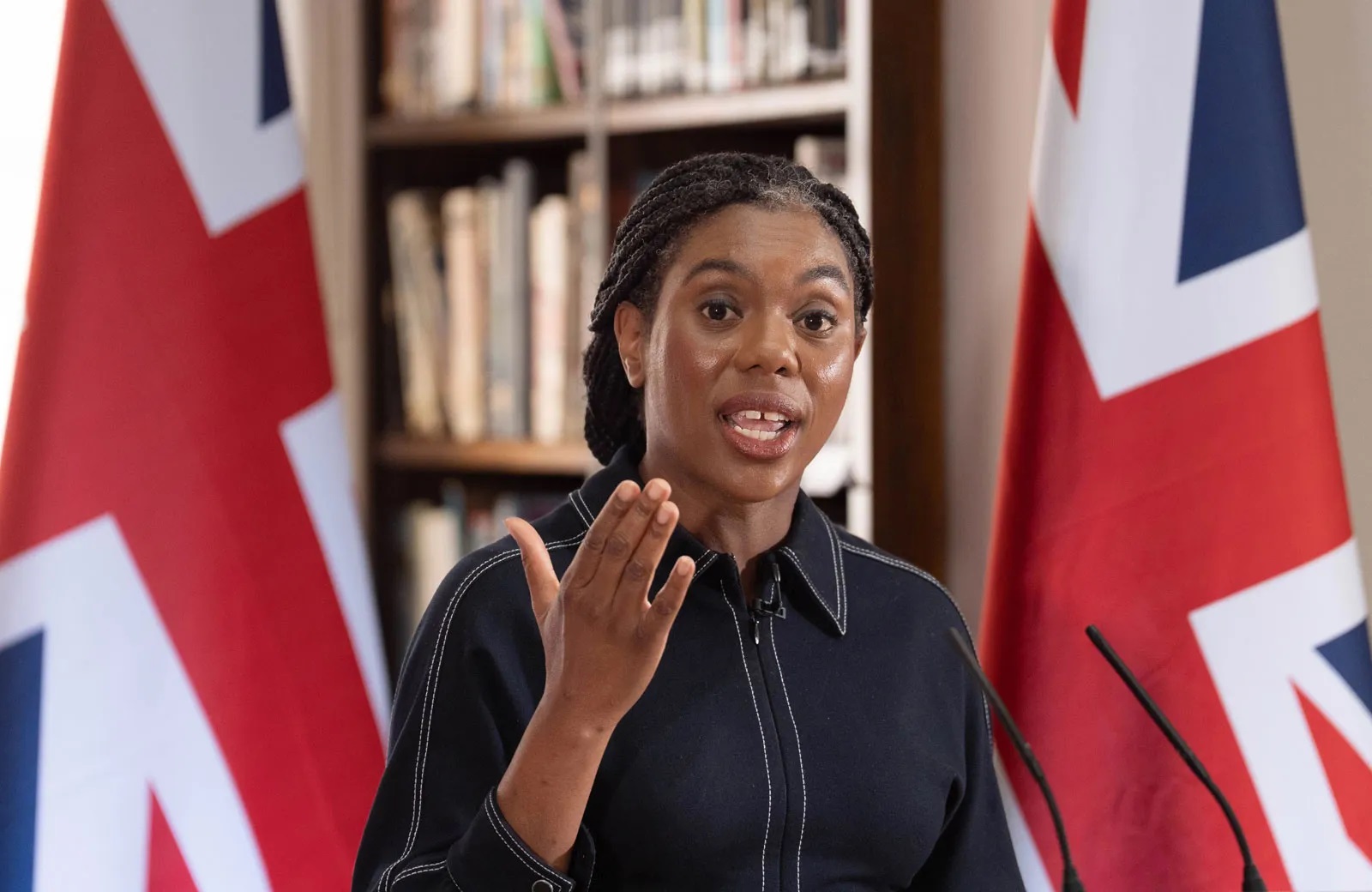
Kemi Badenoch’s recent claim that women of Nigerian descent abroad cannot pass citizenship to their children has sparked outrage at home, fuelling a long-standing criticism that she distances herself from her country of origin to appeal to the British right.
Badenoch, the leader of what is often called the world’s most successful political party, may be one of the most prominent Black women in British politics today. But in Nigeria, the country of her parents, she is far from universally admired. For many of her compatriots, she represents not a source of pride, but a cautionary tale of political ambition detached from ancestral loyalty.
The backlash against Badenoch intensified after she made a controversial claim during a CNN interview aired recently, suggesting that Nigeria’s laws discriminate against women.
“It’s virtually impossible, for example, to get Nigerian citizenship. I have that citizenship by virtue of my parents. I can’t give it to my children because I’m a woman,” Badenoch said. “Yet loads of Nigerians come to the UK, stay for a relatively free period of time, and acquire British citizenship. We need to stop being naïve,” she added, justifying her tough stance on immigration.
Legal experts and government officials in Nigeria swiftly debunked Badenoch’s statement, pointing out that the Nigerian Constitution allows citizenship by descent through either parent. Prominent Nigerian lawyer Femi Falana accused Badenoch of peddling falsehoods to curry favour with right-wing voters in the UK, while a presidential aide Dada Olusegun called her out for “continuous attempts to malign Nigeria”.
Olusegun wrote on X: “Your children, whether born in Nigeria or abroad, are Nigerian citizens by descent, automatically under Section 25 of the Nigerian Constitution. This holds regardless of the father’s nationality.”
The controversy laid bare what many Nigerians see as a broader pattern; Badenoch’s rhetorical distancing from her roots in a bid to align more closely with the UK’s hard-right political establishment. Though born in Wimbledon to Nigerian parents and having spent part of her childhood in Lagos, Badenoch has frequently framed Nigeria, and by extension, Africa, as a cautionary tale.
In several speeches, she cited the dysfunction of postcolonial African states in contrast to the virtues of Western governance, with Nigeria often serving as her primary example.
“I’m a child of the 1980s. Lagos was a place where almost everything seemed broken,” she said at a 2024 International Democracy Union Forum in Washington, DC.
At the Conservative conference in 2024, she told delegates how her childhood in Nigeria was “filled with tales of horror”, characterised by “screams of neighbours every night being attacked”, leading to fears about whether her apartment would be the next target
Such comments may resonate with Conservative voters in the UK, but they strike a different chord in Nigeria, where many people view them as reductive, patronising and rooted in a colonial narrative that positions Africa as inherently broken and the West as its saviour.
Nigerian Vice President Kashim Shettima summed up the sentiment in a veiled rebuke in 2024, accusing Badenoch of “denigrating her country of origin”, in stark contrast, he noted, to former UK prime minister Rishi Sunak, who “never denigrated his nation of ancestry nor poured venom on India”.
On social media, the response to her citizenship statement on Nigeria has been scathing. “She benefits from the same immigration system she now wants to dismantle,” one user posted on X. “If her parents hadn’t left Nigeria, she wouldn’t be where she is today. Yet she trashes Nigeria to get applause from racists.”
Right now, there are many who feel Badenoch shouldn’t be bothered about getting Nigerian citizenship for her offspring from a country she has repeatedly rebuked and rejected. As far as a lot of Nigerians are concerned, the general sentiment seems to be “she should simply enjoy her adopted home and leave us alone in our father’s land”.
For many in the diaspora, Badenoch’s brand of politics raises uncomfortable questions about assimilation and authenticity. Her critics argue that her sharp embrace of anti-immigration rhetoric, coupled with a dismissive tone toward Africa, reflects a calculated effort to reassure a white, conservative base that she is not like the rest of the immigrants.
She has said a lot of things to get elected and she knows her base wants to hear her rags to riches stories. Frankly put, the Conservative leader is currently seen as a disaster for black and brown people who are trying to eke out a living in the UK.
Badenoch’s political positioning has also put her at odds with the Nigerian youth, many of whom see her as complicit in the structural racism they face in the UK. “She may look like us, but she does not speak for us,” says a user on facebook.
The dissonance, according to analysts, is particularly stark given how other Black British politicians with African heritage are received in Nigeria.
Figures like UK Foreign Minister David Lammy or lawmakers Chi Onwurah and Abena Oppong-Asare are often celebrated for advocating racial justice and maintaining a respectful connection with their ancestral homelands. Badenoch, in contrast, is seen by some as leveraging her identity only when convenient.
Badenoch’s defenders, however, argue that she is being unfairly targeted for refusing to play the role expected of her. A skilled political operator, her meteoric rise in the Conservative Party, handling of tough policy portfolios like international trade and equalities, and leadership bid following Sunak’s resignation all point to a politician with ambition.


